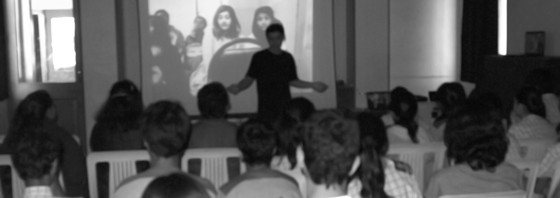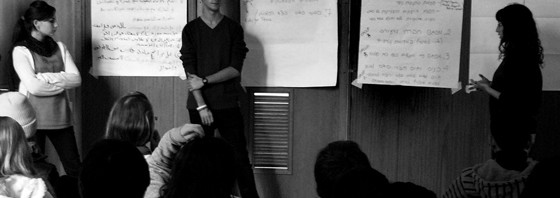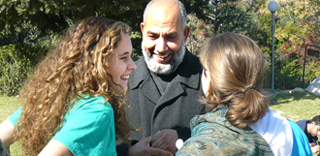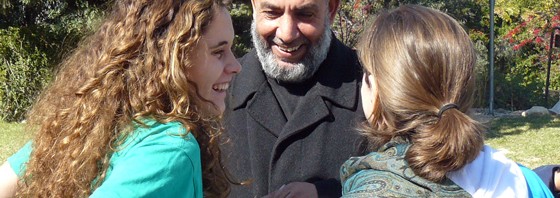Students at Seeds of Peace Camp join 35 educators from conflict regions for summer’s second session
OTISFIELD, MAINE | On July 24, a week after the departure of eight Middle East, South Asian, and American delegations, two new delegations—66 teenagers from Maine and 29 from Syracuse, New York—will arrive at the Seeds of Peace Camp to engage in dialogue, build leadership skills, and tackle conflicts present in their communities.
Joining them will be 35 educators from nine international regions of conflict who are taking part in the Camp’s second annual Educators Program summer course.
Seeds of Peace adapted its internationally recognized conflict resolution and youth leadership program in 2000 to focus on tensions in Maine between the state’s growing refugee and asylum-seeker populations and their neighbors.
This summer marks the 13th year of Maine Seeds programming at Camp, with students attending from 12 schools across the state.
Seeds of Peace’s Syracuse Program, started in 2011, is generously supported by Say Yes to Education with additional assistance from InterFaith Works. Like cities in Maine, Syracuse experiences challenges within its school system due to tensions between American-born populations and communities from Somalia, Sudan, Vietnam, Iraq, Thailand, and other countries.
The Syracuse dialogue program at Camp will focus primarily on four topics: stereotypes and assumptions, white privilege, institutionalized racism, and the role of allies.
For both delegations, this two-week session at the Camp is only a beginning; year-round local programs will enable them to continue developing strong relationships as well as the skills needed to engage others in their schools and communities in the effort to promote understanding. The new campers can preview these opportunities at Camp as 18 Maine and Syracuse Seeds return for a second summer to engage in an intensive week-long advanced dialogue facilitation program.
The Expressive Arts; Educational Action Educators Course runs parallel to the Maine and Syracuse programs. It aims to connect and cultivate peace-builders from various nations who believe in the power of the arts and the critical role they play in creating a more peaceful future. The course will culminate August 5 when participants give a multimedia community concert at Portland Stage Company alongside local performers.
Graduates of the course will join a growing global network of Seeds of Peace Educators committed to the values of respect, cross-cultural understanding, civic engagement, leadership and the peaceful transformation of conflict. The formal and informal educators in this network continue to share professional and personal insights while serving as a resource for others in their own communities.
Say Yes to Education, Inc. is a national non-profit foundation dedicated to valuing and realizing the promise and extraordinary potential of economically disadvantaged youth and families; it is committed to dramatically increasing high school and college graduation rates for urban youth in the United States.
After Camp, Say Yes as well as InterFaith Works will continue their partnerships with Seeds of Peace in order to create initiatives reducing tension and violence within Syracuse schools.






 “Now, more than ever, I believe that it is important to dialogue with the other side,” said one of the Israeli and Palestinian teenagers who participated in an overnight seminar on February 5-6.
“Now, more than ever, I believe that it is important to dialogue with the other side,” said one of the Israeli and Palestinian teenagers who participated in an overnight seminar on February 5-6.
 Join us: Peace Market ’10
Join us: Peace Market ’10 2010 Indo-Pak Homestays
2010 Indo-Pak Homestays BBC Radio Interview
BBC Radio Interview “Camp has taught me how to be a good listener, and how to express my views on the conflict and the problems it creates in my life. Coming home is just the beginning—the journey has just started. Sometimes I feel like I now have the hardest job in the world: to get our message out everywhere and to everybody.” Mai (Seed from Hebron)
“Camp has taught me how to be a good listener, and how to express my views on the conflict and the problems it creates in my life. Coming home is just the beginning—the journey has just started. Sometimes I feel like I now have the hardest job in the world: to get our message out everywhere and to everybody.” Mai (Seed from Hebron) 


